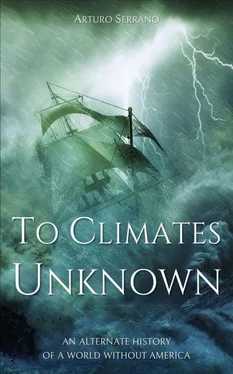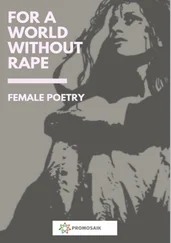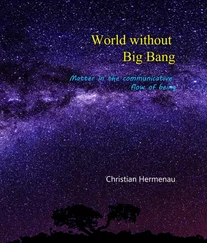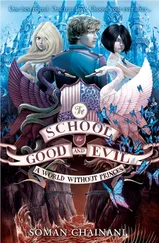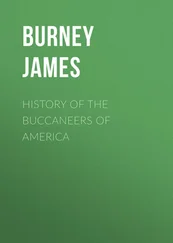Neema checked in the package. “We’ll have to wait until we have more silver paper.”
“Your father will be busy in Paris until next month.” Rukkamma regretted reminding her of Paris. The priest of their church had asked for their prayers and their contributions because an outbreak of plague was sweeping the kingdom of France. She sat next to Neema and said with the best confidence she could muster, “I want you to trust that your father will be safe.” She took her daughter’s hands in hers. “If I’m to get any personal benefit from the work I’m doing here, it’s that every time my husband sets foot on Europe, he’s the best educated person to be found on that continent, which means he’s able to avoid the plague, because my students figured out how. And if one day the priests who run the plague hospitals in France decide they’re no longer scared of our wicked ways and start listening to us, we’ll be happy to teach them. As for us, while we wait for your father, I want you to study this rock in every manner you can, for as long as you need, until it yields its secrets. But tonight, I have school. I think I can cut the parts of the paper that are still usable. Are you coming with me?”
“Yes.” Neema wanted to add that she hadn’t been aware of how much she’d needed her mother’s strength, but the look between them sufficed.
“Good. Now go and take a bath; you’re not getting out of the house smelling like you haven’t seen the sun in two months.” Rukkamma left the bedroom feeling relieved that some normalcy had returned and wishing fervently that it would last.
The classroom was decorated with mismatched posters collected from Paulo’s business trips. On one end, near the exit, was a diagram of human nerves; next to it were a map of the Zaire river and a table of conic sections. A side wall had a realistic drawing of an orchid from Darién, a list of logarithms, a reproduction of Bartolomeu de Gusmão’s airship design, a charcoal sketch of the moon, and a portrait of Hasan Alhazen. The space on the opposite wall was occupied mainly by windows, which were tinted a dark orange to reduce the notoriety of the building, but the chalkboard at the front of the room was flanked by an aquatint of simian heads and an illustration of the chemical reactions of phosphorus. Rukkamma hoped the children would feel inspired after spending hours surrounded by those tokens of human achievement, but even she had sometimes an uncomfortable sensation of distance. All those artists and sages had lived thousands of miles from Likasi. She had days when it took all her concentration to push away the thought that maybe greatness resembled cereal plants in that it preferred to grow in certain lands over others. Her entire career was built on the refusal to believe that poisonous idea.
That afternoon, the children shared the progress they’d made in their individual projects. For the first couple of hours, Rukkamma passed from desk to desk and examined gear contraptions, double-checked statistical conclusions, helped perform buoyancy measurements. Above all, she was happy that Neema was getting involved again.
“Very well, you’ve made interesting observations, so keep doing that, and you’re going to discover even more. In particular I’d like to bring everyone’s attention to Dikanda’s work; she’s spent an incredible number of hours hunting for frog eggs and describing the growth of tadpoles before they hatch. Dikanda, I’d only comment that your notes make no mention of the first days after egg-laying. I suggest you talk to Masini; he’s built an apparatus for seeing small things that I’m sure will be of great assistance. Now everyone listen: since you’ve shown me what you’ve been working on, before we continue discussing the attributes of light, I’m going to share a little of what I’ve been studying.”
She made a gesture at Neema, who handed her a new rolled-up poster.
“This,” she said as she unrolled it, “is a visual form of representing historical information. It’s called a genealogical tree. This one in particular traces the marriages and offspring of the House of Savoy, but that’s not relevant to what I’m going to explain.” She pointed at one of the first branches at the bottom. “This line splits here. It means that this duke had more than one child. From here on, each child has their own line, which splits when they become adults and start having children. So this type of graphic not only shows the connections between people, but also the passing of time. See how some divisions of the same branch are placed higher than others. That means those births occurred later.”
Once she’d made sure that the students grasped how a genealogical tree worked, she gave the poster back to Neema and started writing on the chalkboard.
“Family relations are a useful metaphor for many other things. You know the three official languages of the Iberian Empire: Portuguese, Spanish, and Catalan.” Then she drew vertical lines under each name. “In a way, these languages are siblings, born from the same branch.” She extended the lines further down and connected them. “What could be called the mother language is what you hear in church: Latin.” Then she stepped to her left and wrote two more names. “French and Italian are also descended from Latin,” she said as she traced their lines, “but they’re less close to the Iberian languages.” She saw a child raise his hand. “Yes, Nuno?”
“If Latin is the mother of Spanish, who is the father?”
She waited for the collective laughter to pass and replied, “If I had to name one, that’d be Arabic. But please don’t tell the Iberians I said that.”
Now she stepped to her right and wrote some names the children had never heard.
“As I’ve told you before, I was born in India. We have our own languages there.” She drew lines under each name. “We have Punjabi, and Gujarati, and Nepali, and Hindustani, and Marathi, and Bengali.” Then she connected all the lines at the bottom. “Actually, we have many, many more, but I want to keep this lesson simple. All these languages are descended from an older one, called Sanskrit.” She wrote the name at the root. “None of this is new knowledge. These connections have been obvious for centuries to anyone who looked at the texts.”
With a smile of pride, she added another set of lines to her tree, one under Latin and one under Sanskrit, and connected them still further down, making a root without a name.
“The part that hasn’t been obvious is this. As I’ve read, and made comparisons, and gathered examples, and discussed with my daughter Rukkamma, we’ve become more and more convinced that there must have been an even more ancient language that spawned these two big families. Yes, María?”
“Did you find a book in that old language?”
“There are no books in that language.”
“Then how do you know you’re right?”
“I don’t. What I’ve done is to propose an explanation. Latin and Sanskrit resemble each other in exactly the way they would if they were cousins. And where there are cousins, there must have been a progenitor. Of course, it would be irresponsible of me to affirm things that don’t exist, but here the clues are so well aligned that they can be followed in a specific direction.” She paused and tried to restate her point. “What I’m teaching you with this is not a fact about literary history, but a fact about the human mind. There’s a difference between inquisition and inquiry. The sole aim of inquisition is to find the same thing you were already sure of, regardless of its truth. But the purpose of inquiry is to follow clues toward things that were already true, even if they weren’t obvious.”
The hour that followed felt less meaningful to her in comparison to what she’d said without planning. She found herself surprisingly unimpressed with the camera obscura they built in the classroom with boards and cloths, and almost forgot to mark on the chalkboard the outline of a shape Neema made with her fingers in perfect imitation of a face seen in profile. At the back of her mind she sensed thoughts running and clashing and she grew impatient for the class to end so she’d have some minutes to figure out what was brewing inside her.
Читать дальше
